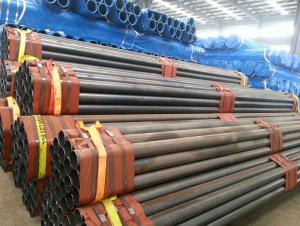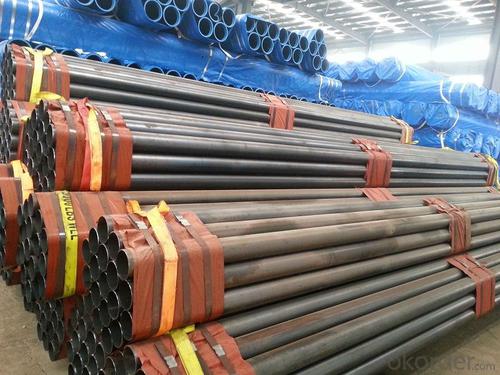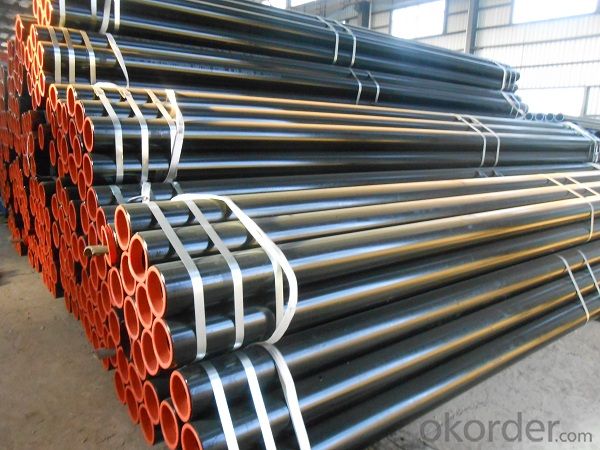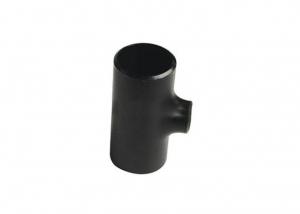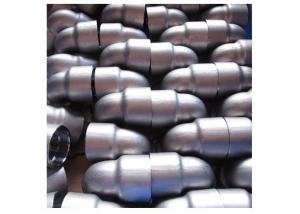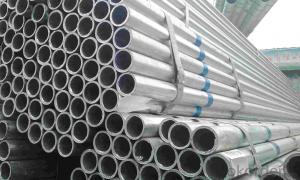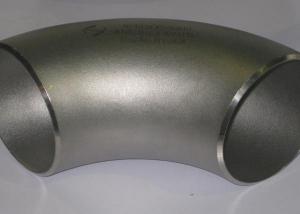Seamless steel pipe for conveying fluid pipeline
- Loading Port:
- Tianjin
- Payment Terms:
- TT or LC
- Min Order Qty:
- 60 m.t.
- Supply Capability:
- 18000 m.t./month
OKorder Service Pledge
OKorder Financial Service
You Might Also Like
1、Structure of Seamless steel pipe for conveying fluid pipeline:
Seamless pipe is formed by drawing a solid billet over a piercing rod to create the hollow shell. As the manufacturing process does not include any welding, seamless pipes are perceived to be stronger and more reliable. Historically seamless pipe was regarded as withstanding pressure better than other types, and was often more easily available than welded pipe.
2、Main Features of Seamless steel pipe for conveying fluid pipeline:
• High manufacturing accuracy
• High strength
• Small inertia resistance
• Strong heat dissipation ability
• Good visual effect
• Reasonable price
3、 Seamless steel pipe for conveying fluid pipeline Specification:
Standard | GB, DIN, ASTM ASTM A106-2006, ASTM A53-2007 |
Grade | 10#-45#, 16Mn 10#, 20#, 45#, 16Mn |
Thickness | 8 - 33 mm |
Section Shape | Round |
Outer Diameter | 133 - 219 mm |
Place of Origin | Shandong, China (Mainland) |
Secondary Or Not | Non-secondary |
Application | Hydraulic Pipe |
Technique | Cold Drawn |
Certification | API |
Surface Treatment | factory state or painted black |
Special Pipe | API Pipe |
Alloy Or Not | Non-alloy |
Length | 5-12M |
Outer Diameter | 21.3-610mm |
Grade | 20#, 45#, Q345, API J55, API K55, API L80, API N80, API P110, A53B |
Standard | ASME, ASTM |
1) Material:20#(ASTM A 106/A53 GRB.API5LGRB,GB),45#,16Mn,10#.
2) Specification range:OD:21.3-610mm,WT:6-70mm,length:6-12m or according to the requirement of clients.
3) Excutive standards:GB,ASME API5L.ASTM A 106/A53,Despite of the above standards,we can also supply seamless steel pipe with standard of DIN,JIS,and so on,and also develop new products according to the requirements of our clients!
4) Surface:black lacquered,varnish coating or galvanized.
5) Ends:Beveled or square cut,plastic capped,painted.
6) Packing:bundles wrapped with strong steel strip,seaworthy packing.
4、Packaging & Delivery
Packaging Details: | seaworthy package,bundles wrapped with strong steel strip |
Delivery Detail: | 15-30days after received 30%TT |
5、FAQ of Seamless steel pipe for conveying fluid pipeline:
①How is the quality of your products?
Our products are manufactured strictly according to national and internaional standard, and we take a test
on every pipe before delivered out. If you want see our quality certifications and all kinds of testing report, please just ask us for it.
Guaranteed: If products’ quality don’t accord to discription as we give or the promise before you place order, we promise 100% refund.
②How about price?
Yes, we are factory and be able to give you lowest price below market one, and we have a policy that “ for saving time and absolutely honest business attitude, we quote as lowest as possible for any customer, and discount can be given according to quantity”,if you like bargain and factory price is not low enough as you think, just don’t waste your time.Please trust the quotation we would give you, it is professional one.
③Why should you chose us?
Chose happens because of quality, then price, We can give you both.Additionally, we can also offer professional products inquiry, products knowledge train(for agents), smooth goods delivery, exellent customer solution proposals.Our service formula: good quality+good price+good service=customer’s trust
SGS test is available, customer inspection before shipping is welcome, third party inspection is no problem.
6、 Seamless steel pipe for conveying fluid pipeline Images:
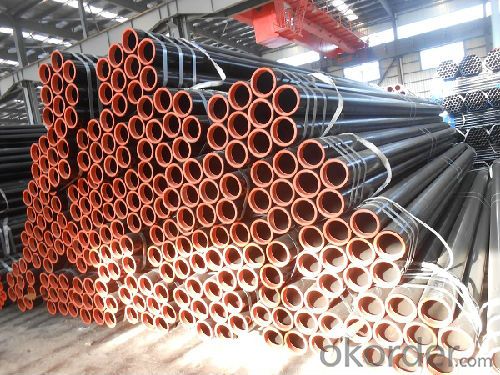
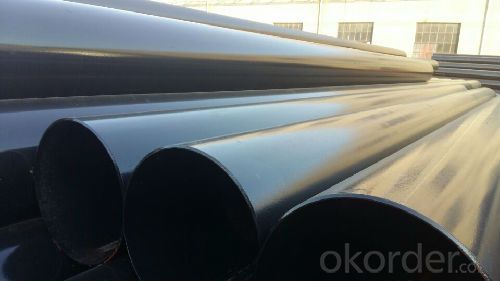
- Q: What are the common sizes of steel pipes available?
- The common sizes of steel pipes available vary depending on the specific industry or application. However, there are several standard sizes that are commonly used across different industries. These sizes are typically referred to by their nominal pipe size (NPS) or their outside diameter (OD). Some of the most common sizes of steel pipes include 1/8 inch, ¼ inch, ½ inch, ¾ inch, 1 inch, 1 ¼ inch, 1 ½ inch, 2 inch, 2 ½ inch, 3 inch, 3 ½ inch, 4 inch, 5 inch, 6 inch, 8 inch, 10 inch, 12 inch, 14 inch, 16 inch, 18 inch, 20 inch, 24 inch, 26 inch, 30 inch, 36 inch, 42 inch, 48 inch, and 54 inch. These sizes are commonly used in various applications such as plumbing, construction, oil and gas pipelines, structural supports, and industrial processes. It is important to note that these sizes may vary slightly depending on the specific industry standards or requirements. Additionally, steel pipes are available in different wall thicknesses, which are commonly referred to as schedules. The most common schedules include schedule 40, schedule 80, schedule 160, and schedule XXS (extra extra strong). The schedule number indicates the wall thickness of the pipe, with higher numbers indicating thicker walls. In conclusion, the common sizes of steel pipes available range from 1/8 inch to 54 inches in diameter. These sizes are commonly used across various industries and applications, and they can vary in wall thickness based on the specific schedule.
- Q: How are steel pipes used in the manufacturing of scaffolding?
- Steel pipes are used in the manufacturing of scaffolding as they provide a sturdy and reliable structure for supporting workers and materials at various heights. These pipes are often used as the main framework, providing the necessary strength and stability required for safe and efficient construction work.
- Q: What is the flexibility of steel pipes?
- Steel pipes have a high level of flexibility, allowing them to be easily bent and shaped to fit different angles and curves. This flexibility makes steel pipes a versatile choice for various applications, including plumbing, construction, and industrial processes.
- Q: How are steel pipes used in the construction of chemical plants?
- Steel pipes are widely used in the construction of chemical plants due to their durability, corrosion resistance, and ability to handle high pressure and temperature. These pipes are primarily utilized for transporting various chemicals, gases, and liquids within the plant, ensuring a safe and efficient flow of materials throughout the facility. They are commonly employed in the installation of process pipelines, utility systems, and structural supports, playing a crucial role in the overall functionality and reliability of chemical plants.
- Q: Can steel pipes be used for structural supports in buildings?
- Steel pipes have the capability to serve as structural supports in buildings. Their reputation for strength, durability, and ability to bear heavy loads is well-known. Their high tensile strength allows them to endure immense tension and compression without fracturing or distorting, making them an excellent choice for buildings that necessitate robust and stable supports. Steel pipes have numerous applications in construction, including as columns, beams, trusses, or even as the primary support for an entire structure. Moreover, they possess great versatility and can be easily fabricated and tailored to meet specific design requirements. Furthermore, steel pipes offer resistance to fire, corrosion, and pests, rendering them a dependable option for enduring structural support in buildings over the long term.
- Q: How are steel pipes used in stadium construction?
- Steel pipes are commonly used in stadium construction for various purposes such as structural support, roofing, and plumbing systems. They provide strength and durability to the overall structure of the stadium, allowing it to withstand heavy loads and adverse weather conditions. Steel pipes are also used for the installation of HVAC systems, water supply lines, and drainage systems within the stadium.
- Q: How are steel pipes used in plumbing systems?
- Steel pipes are commonly used in plumbing systems for their durability and strength. They are used to transport water, gas, and waste materials in both residential and commercial buildings. Steel pipes are known for their resistance to corrosion and high pressure, making them ideal for underground and outdoor applications. Additionally, steel pipes are often used for plumbing fixtures such as faucets, showers, and toilets, providing a reliable and long-lasting solution for water distribution and drainage.
- Q: What are the common methods for inspecting the condition of steel pipes?
- Some common methods for inspecting the condition of steel pipes include visual inspection, ultrasonic testing, magnetic particle inspection, dye penetrant inspection, and radiographic testing.
- Q: What are the different types of steel pipe supports for offshore platforms?
- There are several types of steel pipe supports commonly used for offshore platforms, including but not limited to: 1. Clamps: These are used to secure and fasten pipes to the support structure, providing stability and preventing movement. 2. Hangers: These are used to suspend pipes from the support structure, allowing for flexibility and reducing stress on the pipes. 3. Guides: These are installed to control the movement and alignment of pipes, ensuring they stay in place and prevent damage during operation. 4. Shoes: These are used to support and distribute the weight of the pipe, typically at points where the pipe intersects with the support structure. 5. Saddles: These are designed to cradle the pipe and provide support, typically used for horizontal or inclined pipes. Each type of steel pipe support serves a specific purpose in ensuring the integrity and functionality of the offshore platform's piping system.
- Q: How are steel pipes used in the construction of airports?
- Steel pipes are commonly used in the construction of airports for various purposes such as the installation of water and sewage systems, electrical conduits, and heating and cooling systems. They are also used as structural elements for supporting canopies, walkways, and other infrastructure, providing durability and stability to the airport's overall construction.
Send your message to us
Seamless steel pipe for conveying fluid pipeline
- Loading Port:
- Tianjin
- Payment Terms:
- TT or LC
- Min Order Qty:
- 60 m.t.
- Supply Capability:
- 18000 m.t./month
OKorder Service Pledge
OKorder Financial Service
Similar products
Hot products
Hot Searches
Related keywords
